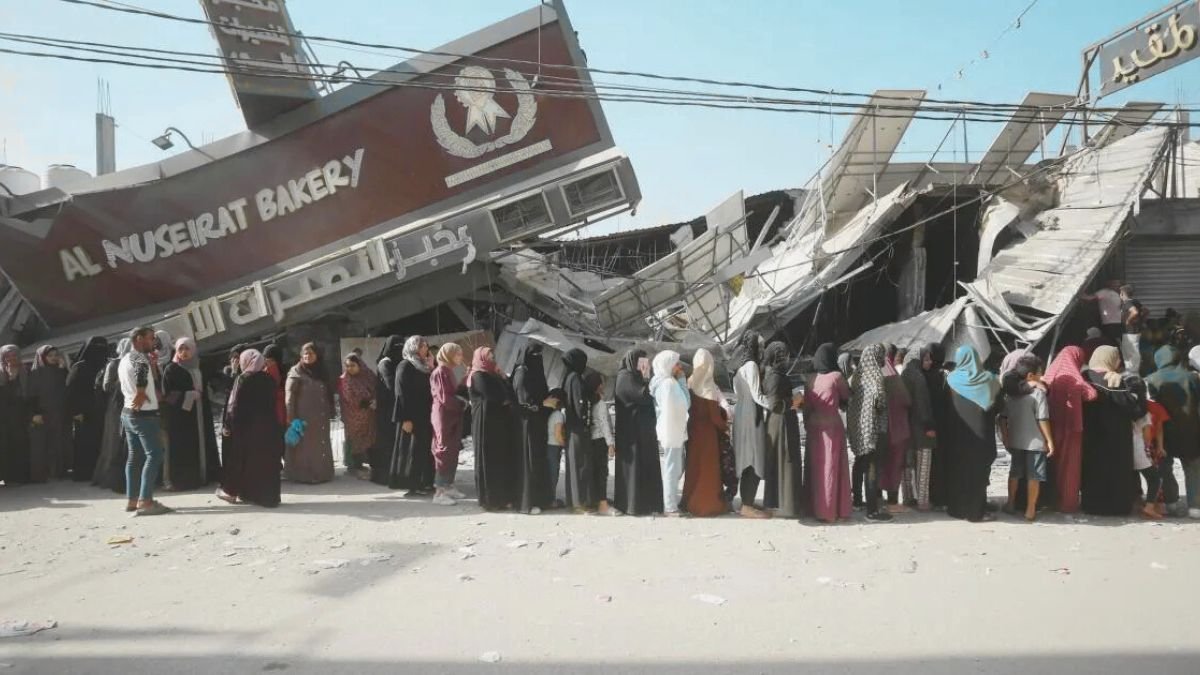Growing Israeli Disquiet Over Gaza Crisis as Famine Fears Intensify
Public and Media Voices Question War's Effectiveness Amidst Dire Humanitarian Situation and Comparisons to Vietnam Shift

Mounting concerns over the devastating humanitarian crisis in Gaza, exacerbated by widespread hunger, are triggering a wave of unease within Israel, challenging Prime Minister Benjamin Netanyahu’s narrative of the ongoing conflict. Nearly two years of relentless conflict have profoundly altered Gaza, prompting urgent warnings of famine from the UN and numerous international agencies. The stark images emerging from the territory have resonated deeply, even within Israeli society.
A telling moment occurred on a major Israeli television channel when, following a program focusing on the crisis, the anchor declared, “Perhaps we should now admit that this is not a PR failure, but a moral one.” This sentiment has struck a chord with many Israelis, particularly in light of Netanyahu’s recent assertions that concerns about Gaza are unfounded and his dismissal of reports of famine.
This shift in public discourse is drawing parallels to the pivotal moment in 1968 when renowned American news anchor Walter Cronkite described the Vietnam War as “unwinnable,” a statement widely credited with altering public opinion in the United States. Similarly, a growing number of Israelis are now questioning whether the gains of the Gaza war outweigh the immense destruction and suffering it has caused.
The conflict, ignited by a Hamas attack on Israel on October 7, 2023, which resulted in the deaths of 1,200 Israelis and the abduction of 250 hostages, has led to a large-scale Israeli military offensive in Gaza. Tragically, over 60,000 Palestinians have been killed, a significant proportion of whom are women and children, and much of Gaza lies in ruins.
The dire humanitarian situation is a key driver of the increasing Israeli discomfort. For weeks, the United Nations’ World Food Programme and other organizations have sounded the alarm about the severe food insecurity affecting over two million people in Gaza. The recent dissemination of images depicting severely malnourished and starving children has further intensified public scrutiny within Israel. While Israeli media initially provided limited coverage of the destruction in Gaza, reports of widespread hunger are now gaining significant traction.
Prominent voices in Israeli media are openly questioning the continuation of the war. Nahum Barnea, a veteran columnist for the widely read Israeli newspaper Yediot Ahronoth, wrote, “The attack on Hamas was necessary at the beginning, but now the damage has become too great. Hamas is responsible, but Israel is also responsible for its actions.” Another commentator in The Jerusalem Post stated, “The war that was right two years ago has become wrong. It must end.”
Even former US President Donald Trump, a staunch supporter of Israel, has acknowledged the hunger crisis in Gaza, stating, “This is real starvation. I can see it, and it cannot be denied.”
Adding to the internal pressure, the heads of five major Israeli universities have penned a letter to Prime Minister Netanyahu, expressing their deep concern over the “deaths of children, hunger, and disease” in Gaza. They invoked Israel’s own history, stating, “We have experienced a tragedy like the Holocaust, so we also have a responsibility to prevent the oppression of others.” In a significant development, two leading Israeli human rights organizations, B’Tselem and Physicians for Human Rights, have for the first time described the situation in Gaza as “genocide.”
Despite this growing chorus of concern, Prime Minister Netanyahu remains resolute. On Monday, he stated, “We are fighting a just and moral war. It is essential for our lives and the security of our country. We will continue to fight until Hamas is eliminated and all the hostages are returned.”






